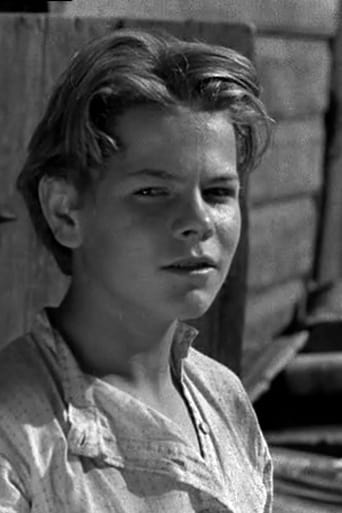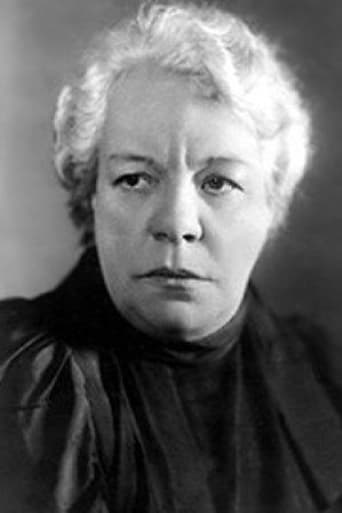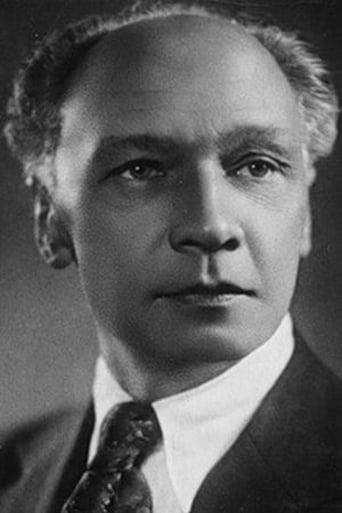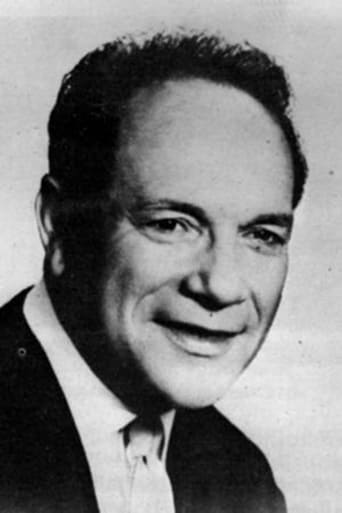Perry Kate
Very very predictable, including the post credit scene !!!
TrueJoshNight
Truly Dreadful Film
Dynamixor
The performances transcend the film's tropes, grounding it in characters that feel more complete than this subgenre often produces.
Bob
This is one of the best movies I’ve seen in a very long time. You have to go and see this on the big screen.
Lee Eisenberg
If you're not familiar with Maxim Gorky, he was a famous Russian author. Moscow's Gorky Park is named in his honor. Mark Donskoy's "Detstvo Gorkogo" ("The Childhood of Maxim Gorky" in English) looks at the author's younger years. If the movie - based on Gorky's autobiography - is any indication, then Gorky had a very Russian childhood. Not just the clothes that he and his relatives and acquaintances wore, but their lifestyle and attitude towards their predicament. Seeing what Gorky's childhood was like, it's easy to see why he ended up subscribing to revolutionary ideas. There was a reason why he adopted the pseudonym Gorky (Russian for "bitter").The movie is very well done. The scene where the prisoners get paraded through town makes clear why Russia had a revolution. Finally, the song played at the end sounds like something that you'd expect to hear in a Hollywood epic from the era (except in Russian, obviously). I wouldn't call this one of the greatest Russian movies ever, but it's nevertheless a solid piece of cinema. I recommend it.
lreynaert
In his moving autobiographical novel 'My Childhood', Maxim Gorky saw his childhood as 'a beehive to which various single obscure people brought the honey of their knowledge and thoughts on life; often their honey was dirty and bitter, but every scrap of knowledge was honey all the same.'Mark Donskoy recreated forcefully this 'beehive' full of loves, like the one between a grandmother and her grandchild, full of fighting or camaraderie among the children, but also, full of brutal violence between wife and husband or between parents and adult children, full of superstition, of alcoholism, of poverty and of revolutionary actions against the czarist State. His directing of a memorable cast (with a marvelous babushka), and in the first place of the children, is simply sublime. The street, kermis and sea scenery is brilliantly shot by his cinematographer, Pyotr Yermolov. The movie's prime message is that 'if we are ordered to do something wrong, our duty is to stand firm and be strong.' This impressive human portrait of life in the 19th century should be a reminder for all spectators of where we all come from. A real masterpiece.
TBJCSKCNRRQTreviews
This shows the early life of Maxim Gorky(Lyarsky, who brings to life his observant, kind and, yes, stubborn, ways). He lives with grandparents, surrounded by other relatives, as the sons of the patriarch each try to talk him into leaving them with more. But why should he divide it up at all? They'll drink it up! He worked so hard to... sure, he doesn't need it all himself... still...And there we have one of the many rich themes in this: when one among the poor is rich. He becomes greedy and paranoid, whilst those who want it the most turn from brothers into bitter enemies. With so little to go around, any pile of it will draw everyone's attention. The Christ symbolism is equally compelling - a foundling who spreads love and joy, a cross-shaped mast on a man-drawn ship, and easily the most well-off seen are the churches. Who in this most follows Jesus' teachings, and who merely pays lip-service? One can appreciate it without having faith in it. We see several praying, and it's one of many places in this where different people's actions, words and attitude contrast those of others. Though it is vital to know the historical context of this, with that in place, it can be appreciated without the deep analysis required to even keep up with a Tarkovsky piece.Whether one reads this as social realism, revolutionary romanticism(Stalin undoubtedly pointed to this as reason to do away with the Tsar) or both, it's undeniably haunting. The way it mixes the tragic and comical. Its love of the underdog(which, indeed, stems from the titular author of this auto-biographical work; while I have not read the novels, I understand that this is an adaptation that stays very true to its source), seen in the numerous portrayals of such: those who have not let their pitiful situations get to them, who hold their heads up high, look others straight in the eyes and retain their integrity and dignity. Some of the members of the family, the neighbor, some children. My father watched this in a theater, in the 60's. He's never forgotten about it since. Only now have I seen it, and I understand how it can stay with someone for half a century.Every aspect of this is expertly done. The acting and characterization is amazing and entirely consistent - so much so that you will remember and tell apart the dozens of people in it. Cinematography and editing are impeccably done, letting us follow what goes on, injecting metaphors and subtly working on the viewer(notice how cramped it makes the home feel, whilst the open nature seems infinite). The 96 minute running time flies right by, yet leaves so much intellectual stimuli to further ponder that it simultaneously feel like a lot more. So many developments, such credible depictions of relationships, environments and work, all of it from the perspective of a child. One has to connect dots and fill in blanks in this, without it lacking a rough edge, in part due to discipline dished out by authority figures, and the harshness of their poverty-stricken life. Unless you can't tolerate it otherwise, make sure not to get a dubbed version of this.There is some brutal disturbing content in this(little of it graphic). The Hyperkino annotated DVD comes with a lot of informational (written!) commentary by Jeremy Hicks. I wholeheartedly recommend this to everyone. 10/10
deng43
another viewer commented on the lack of propaganda; that caught my eye, too, because this is a soviet film about czarist Russia. the soviets were surprisingly even-handed on this one. the only overtly political comment i picked up was when the police arrived at the house asking after a former boarder who was known to be against the czar. this does bring up an interesting point though, for the characters in the family are admittedly and obviously guilty of assaults, torture, murder and arson, but the only time the police appear is when seeking the anti-czarist boarder. it would appear that in this time just about anything went and none were responsible for their acts, unless it was failing to feed oneself when the punishment was beggary. very little in the way of human sympathy existed, and when it surfaced it was repaid thrice over with malice. a mean time. but it is beautifully photographed and the acting is wonderful. there isn't that much of a plot, per se, just vignettes of growing up, but that doesn't detract. it is fascinating to see a time like this preserved. i imagine the ussr in 1938 was actually materially very close to the czarist time it represented. change must have been very slow, as it had been for millenia. i have to say i just love the final shot. it seems the very essence of a soviet statement: the child marches off, leaving his friends behind cheering him on, into a vast flat nothingness - mother Russia unending. he is confidence personified.





